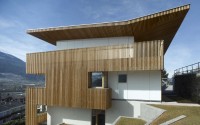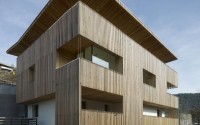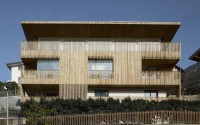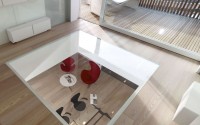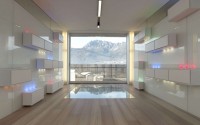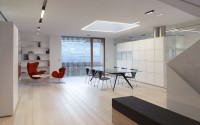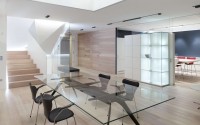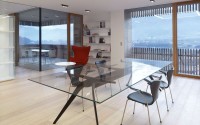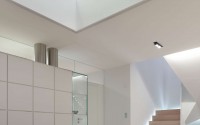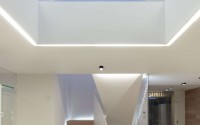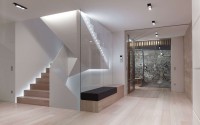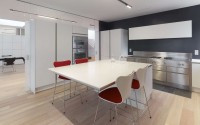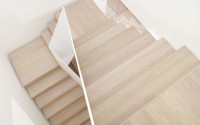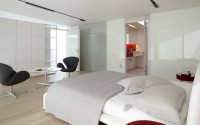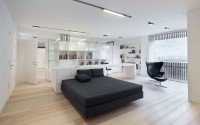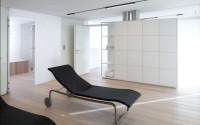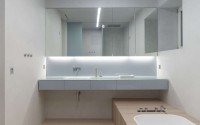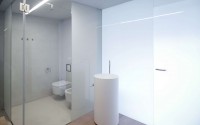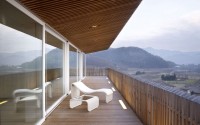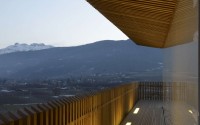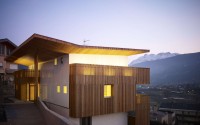PF House by Burnazzi Feltrin Architetti
This contemporary house designed by Burnazzi Feltrin Architetti is situated below the medieval castle of Pergine Valsugana in Italy.

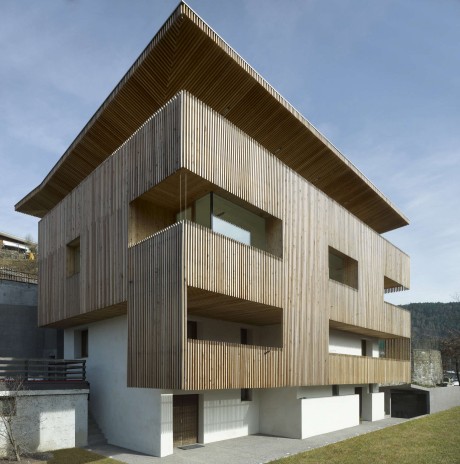
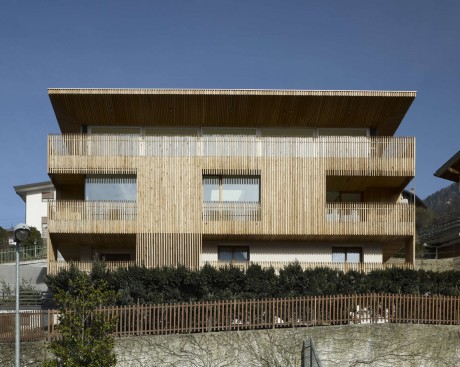
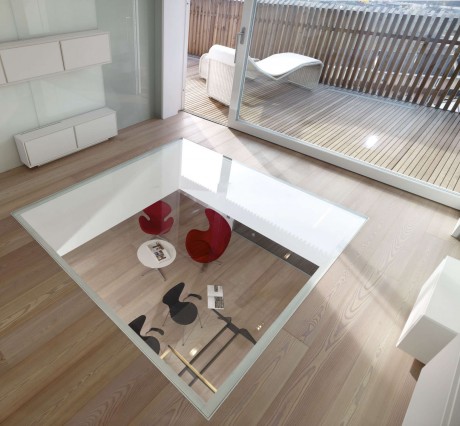
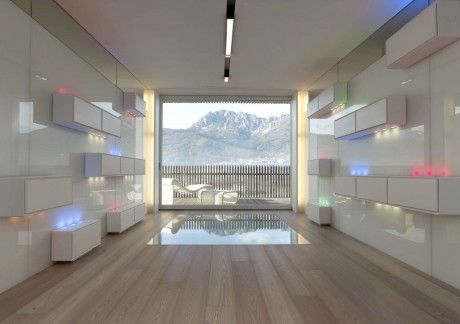
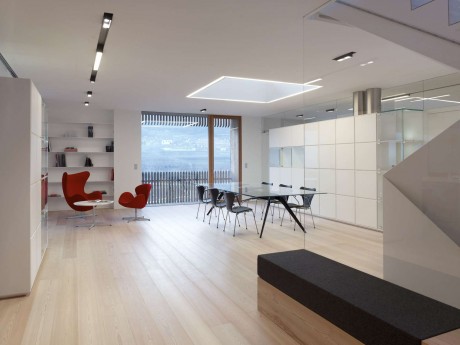
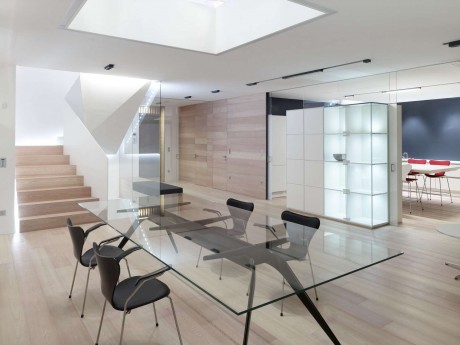
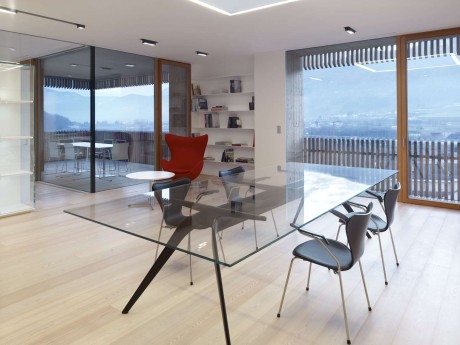
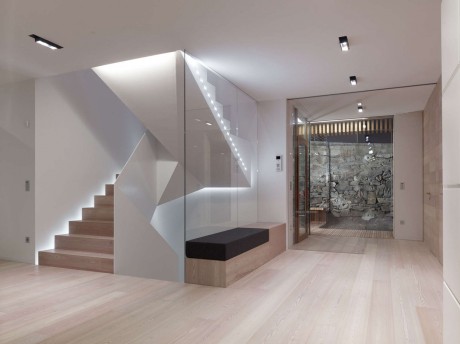
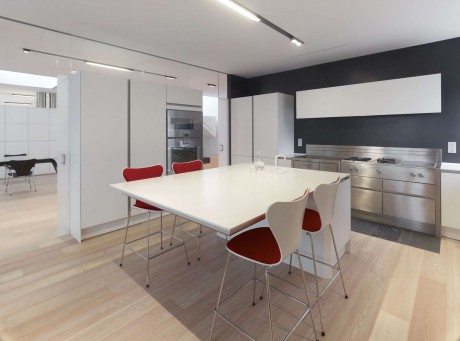
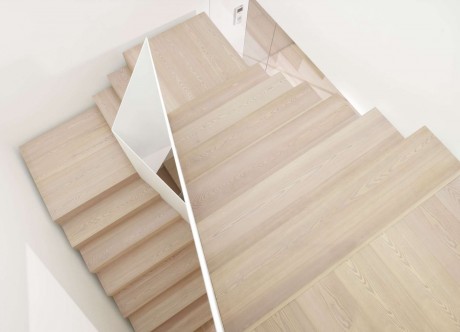
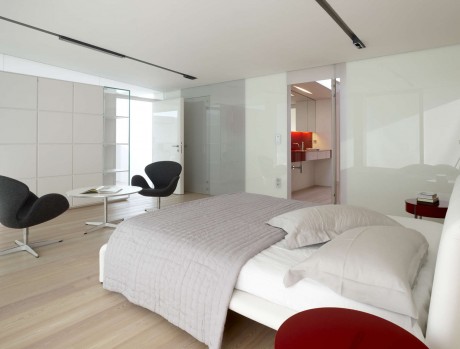
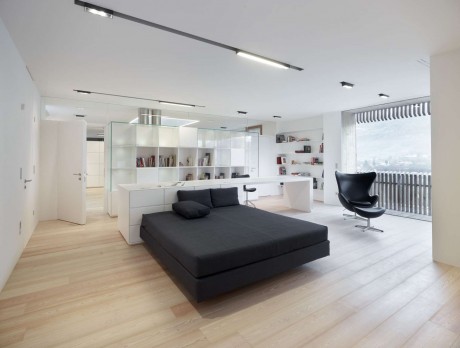
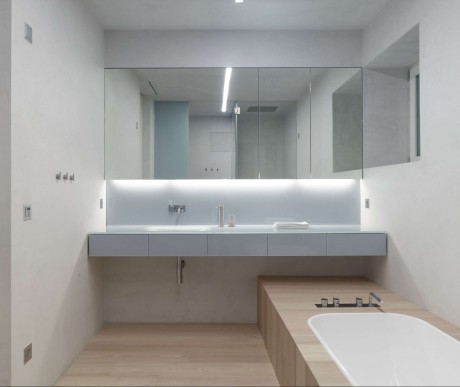
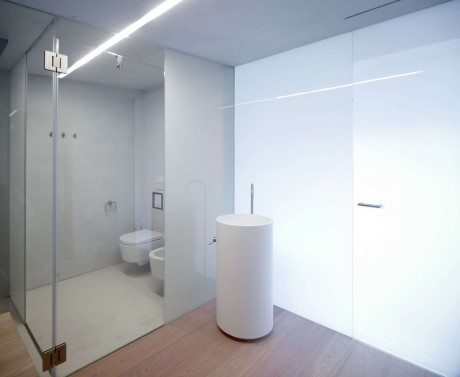
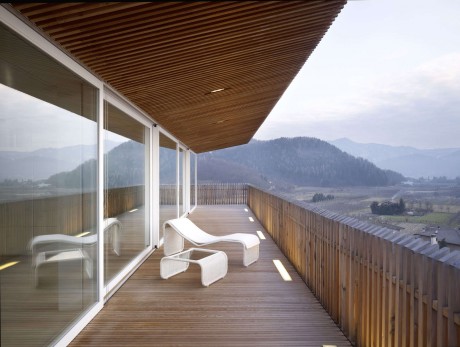
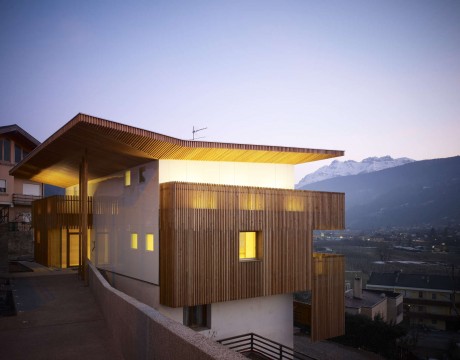
Description by Burnazzi Feltrin Architetti
The PF single family house, the remodeling and rebuilding of an already existing edifice, lies half way along the ridge below the medieval castle of Pergine Valsugana and it is located in an ideal position, both as to the beautiful view on the valley it enjoys and the sun exposure, excellent all year around.
The main characteristics of the design and planning are the structure, the energy efficiency and the spatial inside-outside continuity.
The steel supporting structure of the enlargement is completely independent from the already existing edifice: through a Vierendel beam, the first floor is connected to the ceiling, thus allowing a totally pillar-free ground floor.
The edifice core is characterized by high energy performance elements: the outside walls are made up of prefabricated-preassembled wood with wooden fiber panel insulation, the larch casing and frames are low emission of heat. The whole-house systems use high efficiency ventilation. Radiant walls and floors are used for heating and cooling. Solar powered system provides hot water and domotic technology characterizes the electric system.
The widespread wood usage fosters the deep bound to the rural architecture of this region; the building is composed of two constructive levels: the inferior “heavy” one, and the superior “light” one, almost completely covered with listels. Here, the large glass embossed loggias, with the larch wood penetrating all the way into the building, onto the floor and the walls, create a strong interrelation between the indoor and the outdoor, between private space and the rural surrounding.
Photography courtesy of Burnazzi Feltrin Architetti
Visit Burnazzi Feltrin Architetti
- by Matt Watts